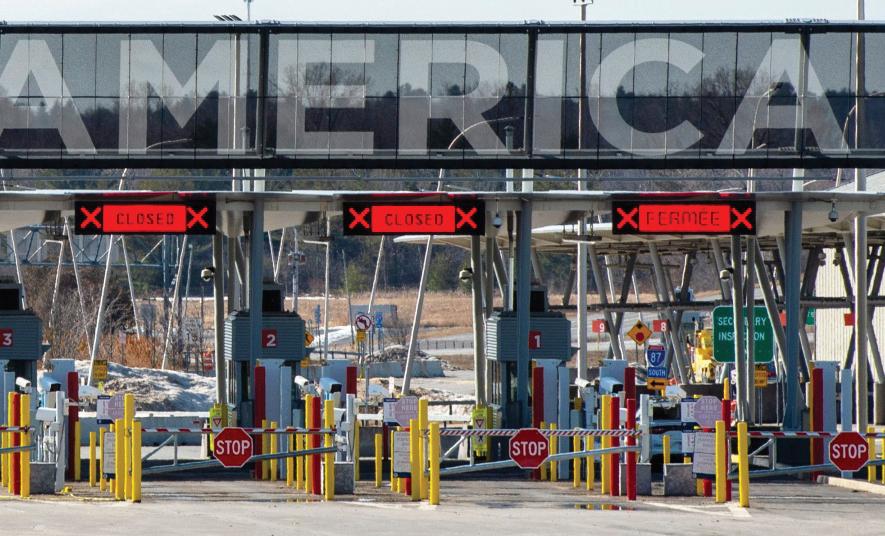
26 minute read
B.C. couple ‘furious’ restaurant used
N ATIONA l & I NT
India will ‘do its best’ to send vaccines to Canada, Modi tells Trudeau
Advertisement
OTTAWA -- With the possibility for Canada to receive COVID-19 vaccines manufactured in India, India’s Prime Minister Narendra Modi says he told Prime Minister Justin Trudeau that his country will “do its best” to see shots sent to Canada. Trudeau and Modi spoke on the phone on Wednesday about the two nations’ respective vaccine rollouts and the need for international co-ordination on securing supplies. In a tweet, Modi said that on the call with Trudeau he “assured him that India would do its best to facilitate supplies of COVID vaccines sought by Canada.” The Serum Institute of India has a contract with AstraZeneca to produce doses of its vaccine, to “supply India but also a large number of countries around the world,” and Health Canada is currently reviewing the facilities—described by AstraZeneca as the world’s largest vaccine manufacturer—as the health agency considers approving the vaccine developed by AstraZeneca and Oxford University for use in Canada.Modi’s office said in a statement following the call that Trudeau spoke with Modi about “Canada’s requirements” of vaccines from India and thanked Modi for supporting Canada’s vaccination efforts, noting the role that the pharmaceutical capacity in India is playing in tackling COVID-19. According to a readout issued by Trudeau’s office following the Wednesday call, the two leaders discussed “India’s significant efforts in promoting vaccine production and supply, which have provided vital support to countries around the world,” and “agreed to work together on access to vaccines.” During a press conference earlier on Wednesday, Trudeau was asked about whether he had planned to reach out to Modi about ensuring supplies from India, and he spoke in generalities in response. “We are continually in contact with our friends and allies around the world on the issues of vaccines, on the issue of fighting COVID. I can highlight that India has been a great partner in fighting COVID, whether it’s helping us with delivery of other pharmaceuticals, or whether it’s working together on potential vaccines,” the prime minister said. He went on to say the government is also in talks with vaccine manufacturers about ensuring “reliable” supplies of shipments and access to additional doses. Source:ctvnews.ca
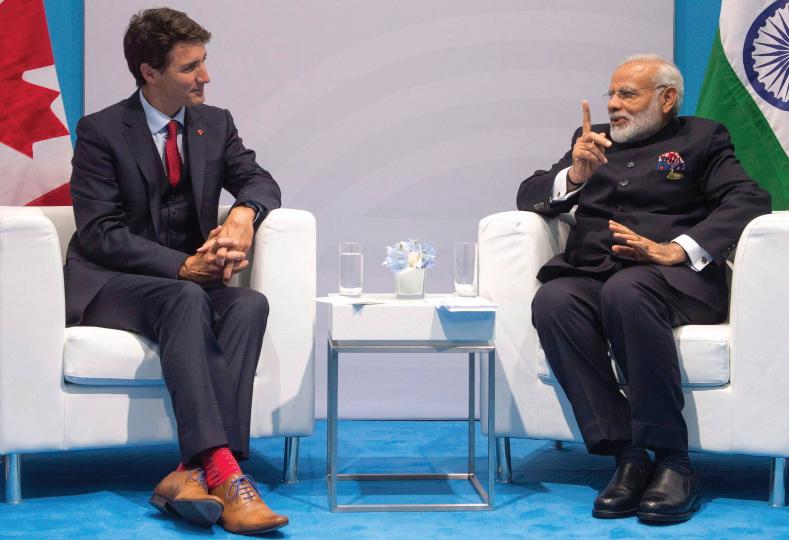
Feds to require negative COVID-19 test for those entering Canada at land borders
OTTAWA -- Prime Minister Justin Trudeau says starting next week, anyone arriving in Canada by land will also need to show a recent negative COVID-19 test. Trudeau says the new measure will kick in Feb. 15, the latest move to keep COVID-19 from spreading within Canada from people who travelled outside it. That is particularly relevant with multiple, more contagious variants of the novel coronavirus now circling, many of them already within Canada. The government began requiring all people arriving in Canada by air to show a negative PCR-based COVID-19 test in early January. But more people are coming into the country in a vehicle than on an airplane. The latest statistics from the Canada Border Services Agency show that since the end of March 2.9 million people, excluding truck drivers, entered through a land border crossing, while 2.4 million arrived by airplane.Trudeau said the federal government cannot prevent Canadians from returning to the country at a land border, even without a test, but if they don’t have the required test they can be fined up to $3,000. Monday will also mark the start of a new plan for how many doses those vaccinating people against COVID-19 can get out of a single vial from Pfizer-BioNTech. Dr. Supriya Sharma, the chief medical adviser at Health Canada, says that after a review, the regulatory team agrees with the companies that each vial of their vaccine contains six doses, rather than five. ”Based on its assessment, Health Canada has determined that each vial will reliably contain six doses of vaccine plus the sufficient overfill volume when proper technique is used,” Sharma said Tuesday. The change means Pfizer will fulfil its contract to ship four million doses to Canada by March by sending fewer vials. Maj.-Gen. Dany Fortin, the military commander overseeing Ottawa’s vaccine distribution program, says next week Canada will get the same number of vials it was expecting, but instead of Pfizer saying those 67,275 vials contained about 336,000 doses, they will count them as 400,000 doses. The week after that, Canada will get 79,170 vials, which will now be counted as 475,000 doses instead of the previous 395,850 doses. Source: ctvnews.ca
Canada should consider hosting 2022 Winter Olympics, says Green Leader Annamie Paul B.C. couple ‘furious’ restaurant used phone number from contact tracing list to send promotional offers
OTTAWA -- Canada should support moving the 2022 Olympics outside China over its “genocidal campaign” against the Uighur Muslim minority, says Green Leader Annamie Paul, and consider offering to play a role in hosting the global competition instead.“If an ongoing genocide is not reason enough to relocate a sporting event, then my question is, what is?” she said during a virtual news conference Tuesday. She urged the International Olympic Committee, along with Canada and other countries that condemn human rights violations in China, to find another venue. She said Canada should think about offering to host the Winter Olympics, possibly with the United States, because both countries have the needed infrastructure and experience. “This is the kind of creative solution that Canada used to be known for and can be known for again,” she said. An open letter signed by 13 MPs, a halfdozen Quebec politicians and others Saturday called for the 2022 Winter Olympics to be moved outside China.The letter demands the International Olympic Committee relocate the global competition to avoid having athletes “tainted” by an event legislators say would be comparable to the 1936 Berlin games under the Nazi regime, rendering it “The Games of Shame.” Bob Rae, Canada’s ambassador to the United Nations, called on the United Nations in November to investigate whether China’s persecution of ethnic Muslim Uighurs in its Xinjiang province constitutes genocide. A Canadian parliamentary subcommittee concluded in an October report that China’s treatment of Uighurs does amount to genocide, a characterization the country rejected as baseless.China has been accused of using forced birth control to limit Uighur births and detention camps to indoctrinate the mostlyMuslim minority into mainstream Chinese society. Beijing has denied any wrongdoing, saying it is running a voluntary employment and language-training program. Source: ctvnews.ca
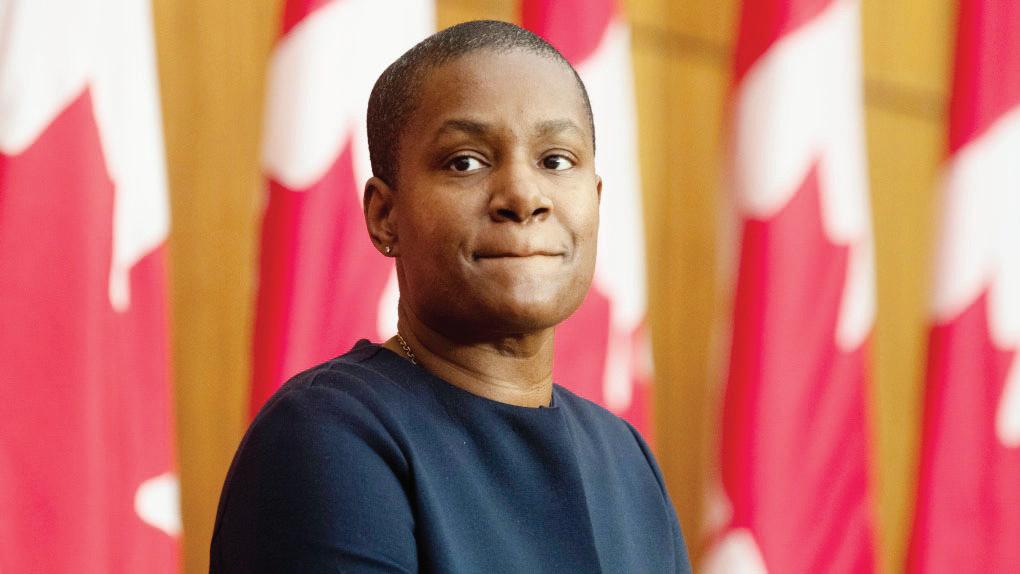
VANCOUVER -- Peter McCartney and his partner were surprised, then angered, to receive a promotional offer via text from a restaurant they visited in Vancouver’s West End.The message was sent to a cellphone number that they say is rarely shared, but was given to staff at the restaurant on Davie Street a month ago, as part of provincial health guidelines.“We sat and wracked our brains. ‘How could they have gotten the number?’ And the only way we can think of was from contact tracing,” McCartney told CTV News Tuesday. Restaurants are required to get contact details from dinein customers so they can be contacted and traced in the event of a COVID-19 outbreak.But that data is not supposed to be used for other purposes. “I’m furious,” said McCartney. “We feel a little violated to be honest. You put your name down on a form like that, and expect that it’s going to be used properly and within the law.” The Office of the Information and Privacy Commissioner for British Columbia has strict guidelines about collecting personal information from customers: “Do not use the collected information for other purposes, such as marketing or analytics,” the rules clearly state.The private information must also be destroyed after 30 days. “It’s illegal, number one. But secondly, it undermines the trust that customers will have in your business,” B.C. Privacy Commissioner Michael McEvoy told CTV News. “It’s really unfortunate that certain businesses might operate in this way.” McCartney understands restaurants are struggling, and didn’t want to reveal the name of the small Indian restaurant, but said he’s still angry about getting a message advertising the upcoming event Dine Out Vancouver. “People need to be able to trust that is happening properly, otherwise they’re going to have reservations about putting their phone number on that contact tracing sheet,” he said.Source: bc.ctvnews.ca

Canadians split in believing Trudeau on vaccinations by September: Nanos survey
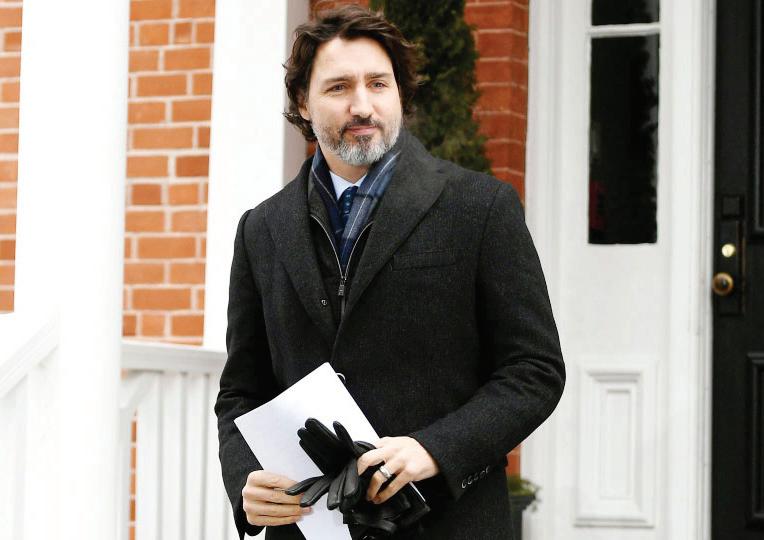
OTTAWA -- A new survey suggests Canadians are split on believing Prime Minister Justin Trudeau that anyone who wants a COVID-19 vaccine will get one by September. According to the latest survey from Nanos Research, commissioned by CTV News, 50 per cent of respondents either believe or somewhat believe that all Canadians will be able to receive a vaccine by September 2021, while 47 per cent do not believe or somewhat do not believe in the timeline. “The outright confidence in hitting that target of September 2021 when it comes to all Canadians getting vaccinated, it’s actually very thin right now,” Nik Nanos, founder of Nanos Research, told CTV’s Power Play on Monday. Despite several delays in vaccine shipments, Trudeau has been adamant that Canada is still on pace with the original plan.“I speak almost every week with CEOs of these vaccine companies, and they have assured me that they will meet their obligations,” Trudeau told reporters last week. “Those doses will begin to accelerate and come in the hundreds of thousands in the coming weeks.” According to CTVNews.ca’s vaccine tracker, just 2.39 per cent of Canadians had received the first dose of a COVID-19 vaccine as of Monday. Canadians were also split as to whether they think the federal government should take over control of the vaccine rollout from the provinces and territories, with 48 per cent of respondents either opposed or somewhat opposed to the idea, and 49 per cent supportive or somewhat supportive of it. Additionally, 60 per cent of Canadians would support the government paying a premium to pharmaceutical companies so Canada could receive more doses faster. The survey also asked Canadians’ opinion on travelling to other provinces to receive a vaccine sooner and 70 per cent of Canadians oppose the practice. Two weeks ago, Great Canadian Gaming Corp. CEO Rod Baker and his wife Ekaterina Baker were each fined $1,150 after allegedly travelling from British Columbia to Yukon and posing as local workers to receive a dose of the vaccine ahead of schedule. British Columbia’s health ministry has indicated that proof of age and residence would be required to receive a vaccine in the later stages of vaccine rollout.Source: ctvnews.ca
9Jamadi ul II 30,1442 Feb 12, 2021 MI ddl E EAST
US sells a million barrels of Iranian oil seized under sanctions
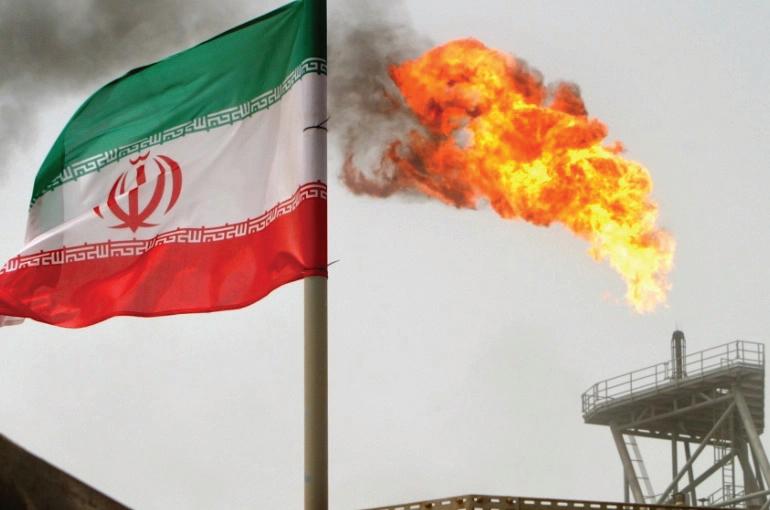
A US Department of Justice spokesman said the seized Iranian oil had been sold and the proceeds would go to the US Victims of State Sponsored Terrorism Fund. The United States has sold more than a million barrels of Iranian fuel seized under its sanctions programme last year, a Department of Justice official said, as another ship with intercepted Iranian crude oil sails to a US port. The seizures are part of Washington’s tough economic sanctions on Tehran imposed over its nuclear programme and the US designation of a number of Iranian groups as “terrorists”, continuing decades of rancour between the two nations. Iran rejects US accusations of wrongdoing. Iran: Armed forces member involved in nuclear scientist’s killing Iran celebrates different revolution anniversary under COVID-19 In a new approach last year, the administration of former US President Donald Trump used civil forfeiture procedures to seize some 1.2 million barrels of gasoline it said were being sent from Iran to Venezuela aboard four tankers. The shipments, the largest seizure by Washington of Iranian fuel to date, were transferred to other vessels and sent to the US, where the fuel was meant to be sold and the proceeds distributed to a fund for US victims of “state-sponsored terrorism”. Department of Justice spokesman Marc Raimondi told Reuters news agency this week that the sale of the cargoes had been completed, adding that the government was “still working out the final expenses”. “The petroleum has been seized, and an interlocutory sale has preserved the cash value
of the petroleum, which is now held by the US Marshals Service,” he said. The value of the gasoline was not known but was likely worth tens of millions of dollars based on benchmark European gasoline prices. Raimondi said the department still needs the US District Court in Washington, DC to enter an order of forfeiture “and then the funds will be transferred to the US Victims of State Sponsored Terrorism Fund”. The fund was established by the US government in 2015 to award compensation to individuals who suffered harm resulting from the acts of those designated by the US as “state sponsors of terrorism”. Source: aljazeera.com
Yemen rebel attack on Saudi airport sets plane on fire
Yemen’s Houthi rebels on Wednesday targeted an airport in southwestern Saudi Arabia causing a civilian plane on the tarmac to catch fire, the kingdom’s state television reported, an attack that threatened to escalate Yemen’s grinding war. No one was hurt in the assault, but the damaged passenger plane at Abha airport served as a powerful reminder of the danger that Houthi rebels pose to Saudi Arabia, which nearly six years ago launched a bombing campaign that has devastated the Arab world’s poorest country. The Iran-aligned Houthis soon claimed responsibility for the assault, with military spokesman Yehia Sarea stressing that the Houthis consider Abha airport to be a military, not civilian, target. “This targeting comes in response to the continued aerial bombardment and the brutal siege of our country,” Sarea said, adding the group attacked with four bomb-laden drones. Col Turki al-Maliki, the spokesman for the Saudi-led military coalition fighting in Yemen, said forces earlier intercepted and destroyed two drones launched by Houthis toward the country’s south. He condemned the assault as a “systematic and deliberate attempt to target civilians”. “The attempt to target Abha airport is a war crime and put civilian travellers’ lives in danger,” the coalition statement said, adding that the aircraft was on the ground at the time and that the fire was brought under control. Photographs later aired by Saudi state television showed the aircraft, a three-year-old Airbus A320 flown by low-cost carrier FlyADeal. It appeared the drone had punched a hole through its fuselage, with scorch marks on the metal. An anchor on state television said there were no injuries on the ground from the fire. FlyADeal did not immediately respond to requests for comment. Source:dawn.com
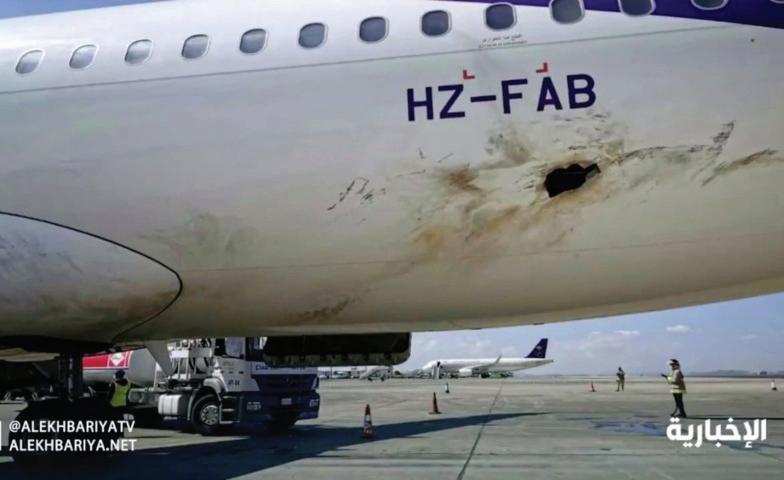
Palestinian factions agree on ‘mechanisms’ for long-delayed polls
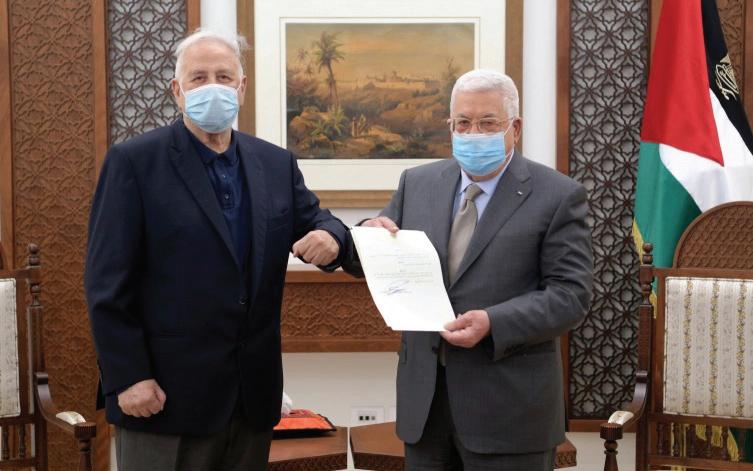
At the end of a two-day summit in Cairo, Fatah, Hamas and 12 other factions say they have agreed to hold legislative and presidential elections in May and July. Palestinian factions Fatah and Hamas say they have agreed on the “mechanisms” for upcoming legislative and presidential elections, after a rapprochement between the two movements. The deal reached on Tuesday in Egypt’s capital provides for an “electoral cases court” and commits to allowing free campaigning and voting. A joint statement at the end of the two-day session in Cairo said both groups and 12 other Palestinian factions pledged “to abide by the timetable” for the long-delayed balloting and “respect and accept” the results. The parliamentary and presidential polls – set for May 22 and July 31, respectively – are the first in 15 years. There has been widespread scepticism the elections will even happen. Many Palestinians believe they are mainly an attempt by Palestinian Authority (PA) President Mahmoud Abbas, of Fatah, to show his democratic credentials to new US President Joe Biden, with whom he wants to reset relations after they reached a new low under Donald Trump. The Fatah-run PA has limited self-rule in the Israeli-occupied West Bank, while Hamas has held power in the Gaza Strip since 2007, the year Israel imposed a devastating blockade on the Mediterranean enclave. According to the statement, the “electoral court” will be comprised of judges from the West Bank, Gaza and East Jerusalem, who will rule in any election-related legal disputes.“This court is responsible for monitoring all matters relating to the electoral process, its results, and the issues arising from it.”It also said “the uniformed Palestinian police, and no one else”, will guard voting sites in the West Bank and Gaza Strip and “their presence will be in accordance with the law”.The two groups also agreed to release detainees held on political grounds in the West Bank and Gaza and allow unrestricted campaigning. There are 2.8 million eligible voters in Gaza and the West Bank.Abbas, 85, announced in January the dates for the elections, and he is expected to run.The last ballot, in 2006, ended in a surprise win by Hamas in its first participation in parliamentary elections. Hamas then pushed Fatah out of Gaza when the latter refused to recognise the result of the vote. Source:arabnews.com
The Saudi women’s rights activists who remain behind bars
Saudi activist Loujain al-Hathloul was released from prison on Wednesday, but several others remain in detention. Rights groups have welcomed the release of women’s rights activist Loujain al-Hathloul from prison, but several other activists remain behind bars in Saudi Arabia.Over the past three years, Saudi Arabia has detained hundreds of people it sees as dissenters – including activists like al-Hathloul – but it has begun provisionally releasing some as it comes under pressure from the new administration in the United States. Saudi women’s rights activist Loujain al-Hathloul to stand trial. The detentions cast a spotlight on the human rights record of the kingdom, an absolute monarchy that has also faced intense criticism over the 2018 murder of journalist Jamal Khashoggi by a team of Saudi agents in its consulate in Istanbul. Al-Hathloul was one of at least a dozen women’s rights activists detained in Saudi Arabia in 2018, three of whom are believed to remain in prison:
Samar Badawi
Women’s rights activist Samar Badawi was arrested in 2018 over charges linked to her human rights activism. Badawi is known for her legal battle with her abusive father, who filed a lawsuit against her after she sought refuge in a women’s shelter in 2008. She has advocated for the abolition of the male guardianship system, which among other things, grants male custodians the right to prevent their daughters from marrying, studying or travelling without prior consent. Badawi is the sister of Saudi blogger Raif Badawi, who was sentenced to 10 years in prison in 2012 for criticising officials. She was apprehended along with Nassima al-Sadah, a women’s rights activist from Saudi Arabia‘s Eastern Province.
Nassima al-Sadah
Nassima al-Sadah is a columnist and human rights activist who campaigned for civil and political rights as well as for the right of women to drive. According to Amnesty International, she was banned from participating in municipal elections in 2015. She was also subject to a travel ban prior to her detention.
Mayaa al-Zahrani
Mayaa al-Zahrani was detained in 2018 for a social media post in support of Nouf Abdulaziz al-Jerawi, a fellow activist arrested after security forces raided her home.Al-Zahrani had posted an article written by al-Jerawi, where the latter clarified her role as volunteering to help the oppressed by putting them in contact with lawyers and human rights groups. Source:irishtimes.com
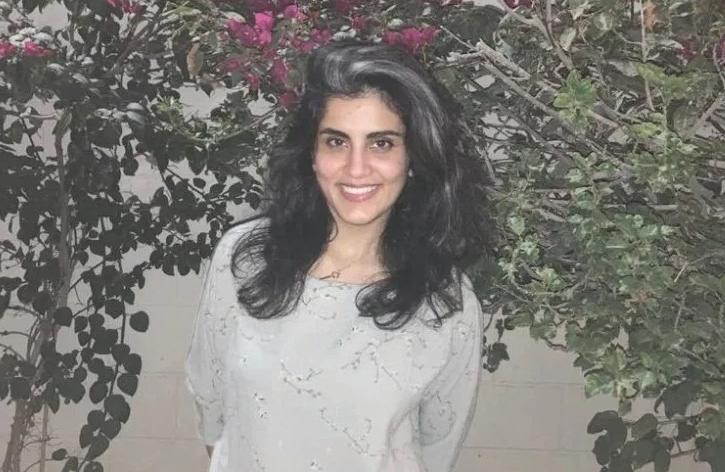

Afgh AN PO l ITI c S What options does Biden have in Afghanistan?
Withdrawing US troops in May could derail the Afghan peace process. So, what can the new US administration do?
By: Ibraheem Bahiss On December 2, 2020, the Afghan government and the Taliban announced an agreement on the procedural framework document that will act as a code of conduct during their peace negotiations. Shortly afterwards, the teams exchanged their respective agenda lists and announced a weeks-long hiatus. Although the teams resumed their talks on January 6, the sides have made little progress and have only met a few times. It appears both the Afghan sides are waiting for clarity from the Biden administration on their approach to Afghanistan instead of focusing on progress in talks. The administration has thus far issued vague statements regarding a review of the agreement and assessing the Taliban’s progress in fulfilling their commitments. Despite its shortcomings, the US-Taliban agreement and consequent intra-Afghan negotiations provide a singular opportunity to bring peace to war-torn Afghanistan and end the United States’s longest war. With the peace talks progressing slowly and the May deadline for withdrawal fast approaching, the Biden administration will have to make some difficult decisions. There are no easy solutions regarding Afghanistan. If the US withdraws before significant progress has been made in intra-Afghan talks, there is a risk the entire process could collapse and result in renewed violence. If the US and NATO decide to keep their troops on the ground beyond the May deadline – as recent reports have indicated – it could result in an abandonment of the agreement and a renewed conflict with the Taliban. The Biden administration has several policy options to address the crisis.
Full withdrawal by May
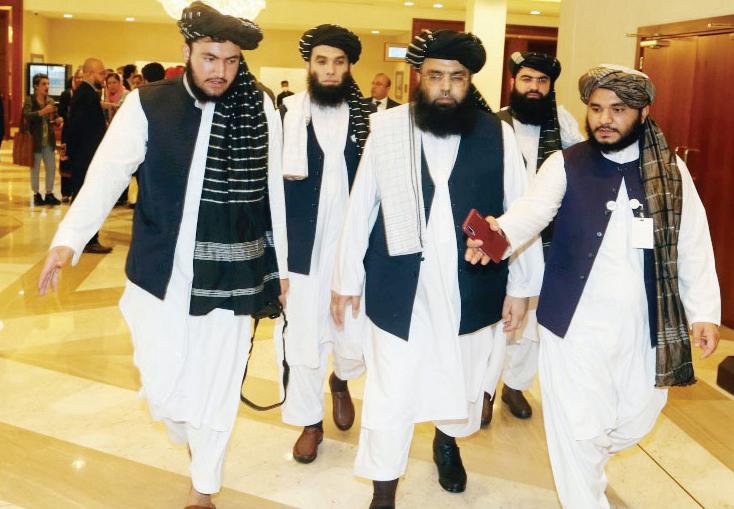
One policy option would be to abide by the withdrawal schedule set up by the Trump administration. President Joe Biden has shown unease with putting US troops in harm’s way in Afghanistan even before the US-Taliban agreement was concluded. A full US military withdrawal by May, however, leaves two major issues unaddressed. First, the presence of the US military in Afghanistan has ensured a military equilibrium between the two negotiating sides. Although the US has reduced its military engagement, its continued presence has prevented the Taliban from tilting the balance of power on the ground in its favour. In the case of a full withdrawal of foreign troops, unless the parties can make rapid progress in talks – which is unlikely – both sides would seek to exert pressure on each other in the military theatre. Any significant alteration in the battlefield could complicate the peace talks and make political compromise more difficult. Furthermore, the Taliban could abandon the peace process altogether, perceiving the other side as significantly weaker, and attempt to take power by force. Following the agreement largely unencumbered by US air raids, Taliban fighters have been shutting down main highways and pushing government security forces to the confines of urban centres or large military installations. Their success in storming previously impregnable areas has reinforced their perception that Afghan security forces could crumble in the face of a series of focused offensives. Second, unless a compromise between the two sides is reached, neither the Afghan government nor the Taliban will be in a position to prevent threat projection from smaller terror groups. Hardline armed groups will continue to exploit the security vacuum to operate in the country and possibly plan acts abroad. That is why it seems less likely the Biden administration will go for this option.
Retaining a residual force
Given the risks a complete withdrawal could bring, the new administration could consider leaving behind a small US military force, focussed exclusively on counterterrorism. This force would also act as an equaliser in the military theatre and discourage outside interference. As the US-Taliban agreement stipulates that all non-diplomatic foreign military personnel must leave Afghanistan, the US cannot retain such a force unless they either renegotiate the US-Taliban agreement or completely ignore it. It is extremely unlikely the Taliban will agree to host a residual foreign force in the foreseeable future. The group has consistently stated that the presence of even a single foreign troop makes jihad an obligation on all Afghans. If international troops remain without some form of agreement, the Taliban leadership will be unable to enforce adherence to the current deal as Hanafi jurisprudence – which the group follows – stipulates that when a central clause of a treaty is abandoned or breached, then it amounts to the abrogation of the entire agreement. Its military successes in recent years and the political recognition it has received from most regional powers have convinced the armed group that if a political solution fails, it can continue to expand its military operations. This would likely mean the Taliban will renew attacks on foreign forces and urban centres and potentially provide sanctuary to foreign armed groups again. Even if US airpower is able to prevent a total collapse of the Afghan army, the fighters would continue with their current strategy of confining government presence to major urban centres and ramping up violence in government-controlled areas. To push back against such an escalation, the US would then need to bring its military presence back to the pre-agreement levels. In other words, a residual force, regardless of its size or scope, would most certainly result in prolonging the two-decade war.
A short-term extension of withdrawal deadline
A third option for the US would be to seek a short-term extension of the withdrawal deadline to address key US policy concerns and accelerate progress in the peace talks. The Biden administration can seek this extension in two different ways: It can either claim that the Taliban has not fulfilled its obligations under the agreement, as some of its officials seem to be doing right now, or seek to renegotiate the agreement without pushing for a residual force. Suspending the withdrawal by claiming the Taliban have not fulfilled their obligations such as preventing armed groups from being based in areas under their control or failing to reduce violence would provide short-term respite but leave important issues, such as continued commitment to a political process or long-term prevention of “terrorism”, unaddressed. Based on past behaviour, the Taliban will adopt a literalist approach in fulfilling its obligations and seek to limit the scope of discussions to issues pertaining to nonperformance. It is worth recalling that the group chose extremely precise wording pertaining to their obligations, omitting a clear commitment to publicly cut ties with armed groups. This will enable them to make a case that they have fulfilled their obligations or that they are only required to fully prevent foreign armed groups from operating from Afghanistan after all foreign troops withdraw from the country. Demands, such as publicly severing ties with al-Qaeda or actively fighting against foreign groups, will be viewed as deviations from the letter of the agreement. Insistence on such new obligations or wider negotiations in this context might be viewed as malignant and risk unravelling the entire agreement. Actions such as a unilateral extension of the withdrawal deadline by the US will be risky and could provoke the Taliban into retaliatory measures. This could risk serious repercussions that would bring the entire agreement into question and potentially derail the peace process. A more prudent approach would be to seek a short-term extension through negotiations. The new US administration can signal that it seeks a revision of the agreement and clarifications. This would be possible given the many ambiguities in the agreement in how certain provisions are worded, including the requirement for reduction in violence by all sides, the areas which fall within the violence-de-escalation provision, the use of international forces to support the Afghan army, and the Taliban’s obligations vis-a-vis foreign groups. However, there is no guarantee the Taliban will consent to a short-term extension. There is growing resistance within the Taliban to the ongoing peace process. Other than the release of 5,000 prisoners, all other obligations towards the group remain unfulfilled. As mentioned above, unless progress is made in talks, or other provisions of the agreement are fulfilled, the Taliban might be tempted to step away from the political process and refocus on its military campaign. To maximise the chances of gaining the Taliban’s consent for an extension, the US should focus its efforts on fulfilling certain portions of the agreement and expediting the intra-Afghan peace process. For example, the new administration can begin delisting Taliban leaders from US sanctions lists and facilitating further prisoner exchanges. However, even if Washington manages to negotiate an extension, it would not be more than a few months long.
Expediting the intra-Afghan talks
While seeking to postpone full withdrawal, the US should also seek to accelerate the talks between the Taliban and the Afghan government. Otherwise, it risks facing the same dilemma when the new withdrawal deadline approaches. To avoid this scenario, the Biden administration needs to engage in more aggressive diplomacy and put more effort into building regional consensus to support the peace process. While the Trump administration made major strides on this front, its advances were hindered by some of its controversial policies, including the trade war with China and the maximum pressure campaign against Iran. India has also remained ambivalent while the EU has, at times, criticised the current approach. President Biden can seek to involve China and Russia more directly in the peace process in Afghanistan and reach out to Iran. Building regional support for the peace process is crucial because it would prevent both the Afghan government and the Taliban from playing regional powers against the US. This would allow the Biden administration to use its leverage over the two sides with greater efficiency. The Afghan government relies heavily on the US for financial assistance while the Taliban knows its political viability will depend on international recognition and assistance guaranteed by the US. Continued US engagement, including the recognition of any new government, financial assistance, and future investments, remains the Biden administration’s strongest leverage over both sides to the conflict. The success of this approach is far from guaranteed, but if the US cannot negotiate an extension, it will have to choose between a withdrawal in May and a resumption of the conflict. At this point diplomacy still appears to be more useful in resolving the Afghan conflict than the failed military approaches of the past two decades. Source:aljazeera.com
UAE’s space probe Abu hanifah, ‘Imam e Azam’
and reduce its reliance on oil. Its space agency has a plan for a Mars settlement by 2117. It aims to provide a complete picture of the Martian atmosphere for the first time, studying daily and seasonal changes. Source: aljazeera.com Continued from page 1 His political opponents in the high places in the Khalifah’s government became successful in having him branded as an opponent of the regime. He was thus arrested. He died a few weeks after being jailed. One version is that he was poisoned while in prison, another, that he was released and died soon after, in Rajab 150 H. Qadi Hassan b. Ammarah bathed his body and stated, “By Allah, you were the greatest Faqih and the most pious man of our time. You Continued from page 5 had all the qualities of greatness in you. You were indeed so great that no one after you may hope to reach your level”. It is said that fifty thousand persons attended the first funeral prayer and the prayer was repeated six times because of the large number of people present. He was buried at Khaizran near Baghdad. In 459 H., Sultan Alp Arslan Saljuqi had a dome erected over his tomb. A Madrasa (religious school) was also built close to it, called ‘ Mashhad Abu Hanifah’. His tomb is a place for pilgrimage for Muslims, and the Madrasa still continues to function. Source: There are twenty seven biographies of Abu Hanifah(RA). A few are available in most bookstores. Shibli Nu’mani(RA) wrote ‘Seerat e Nu’man’, translated by Hadi Hassan into English, published by Idara Isha’at e Dinyaat, New Dehli. Professor Abu Zahra of Cairo has written Hayat e Abu Hanifah, an excellent book, with Urdu translation by Prof. Hariri of Faisalabad.


